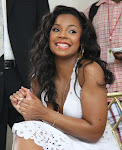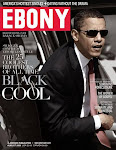Monday, August 4, 2008
The Rev. Paul Earl Sheppard had recently become the senior pastor of a suburban church in California when a group of parishioners came to him with a disturbing personal question.

They were worried because the racial makeup of their small church was changing. They warned Sheppard that the church's newest members would try to seize control because members of their race were inherently aggressive. What was he was going to do if more of "them" tried to join their church?
"One man asked me if I was prepared for a hostile takeover," says Sheppard, pastor of Abundant Life Christian Fellowship in Mountain View, California.
The nervous parishioners were African-American, and the church's newcomers were white. Sheppard says the experience demonstrated why racially integrated churches are difficult to create and even harder to sustain. Some blacks as well as whites prefer segregated Sundays, religious scholars and members of interracial churches say.
Americans may be poised to nominate a black man to run for president, but it's segregation as usual in U.S. churches, according to the scholars. Only about 5 percent of the nation's churches are racially integrated, and half of them are in the process of becoming all-black or all-white, says Curtiss Paul DeYoung, co-author of "United by Faith," a book that examines interracial churches in the United States.
DeYoung's numbers are backed by other scholars who've done similar research. They say integrated churches are rare because attending one is like tiptoeing through a racial minefield. Just like in society, racial tensions in the church can erupt over everything from sharing power to interracial dating.
DeYoung, who is also an ordained minister, once led an interracial congregation in Minneapolis, Minnesota, that eventually went all-black. He defines an interracial church as one in which at least 20 percent its membership belongs to a racial group other than that church's largest racial group.
"I left after five years," DeYoung says. "I was worn out from the battles."
The men and women who remain and lead interracial churches often operate like presidential candidates. They say they live with the constant anxiety of knowing that an innocuous comment or gesture can easily mushroom into a crisis that threatens their support.
"It's not all 'Kumbaya' and 'We are the World,' " says Sheppard, the pastor of the Northern California church, who was raised by his father, a Baptist preacher, in the black church. "There are plenty of skirmishes."
For the rest of this story CLICK HERE
CNN.com

They were worried because the racial makeup of their small church was changing. They warned Sheppard that the church's newest members would try to seize control because members of their race were inherently aggressive. What was he was going to do if more of "them" tried to join their church?
"One man asked me if I was prepared for a hostile takeover," says Sheppard, pastor of Abundant Life Christian Fellowship in Mountain View, California.
The nervous parishioners were African-American, and the church's newcomers were white. Sheppard says the experience demonstrated why racially integrated churches are difficult to create and even harder to sustain. Some blacks as well as whites prefer segregated Sundays, religious scholars and members of interracial churches say.
Americans may be poised to nominate a black man to run for president, but it's segregation as usual in U.S. churches, according to the scholars. Only about 5 percent of the nation's churches are racially integrated, and half of them are in the process of becoming all-black or all-white, says Curtiss Paul DeYoung, co-author of "United by Faith," a book that examines interracial churches in the United States.
DeYoung's numbers are backed by other scholars who've done similar research. They say integrated churches are rare because attending one is like tiptoeing through a racial minefield. Just like in society, racial tensions in the church can erupt over everything from sharing power to interracial dating.
DeYoung, who is also an ordained minister, once led an interracial congregation in Minneapolis, Minnesota, that eventually went all-black. He defines an interracial church as one in which at least 20 percent its membership belongs to a racial group other than that church's largest racial group.
"I left after five years," DeYoung says. "I was worn out from the battles."
The men and women who remain and lead interracial churches often operate like presidential candidates. They say they live with the constant anxiety of knowing that an innocuous comment or gesture can easily mushroom into a crisis that threatens their support.
"It's not all 'Kumbaya' and 'We are the World,' " says Sheppard, the pastor of the Northern California church, who was raised by his father, a Baptist preacher, in the black church. "There are plenty of skirmishes."
For the rest of this story CLICK HERE
CNN.com
Labels: Real Life
Subscribe to:
Post Comments (Atom)












0 comments:
Post a Comment